OLIVER FOREST WIND FARM
PUBLIC EXHIBITION
28 February –
22 March 2024





28 February –
22 March 2024




We want to thank you for sharing your views with us since our first exhibition in spring 2023.
At this exhibition we are sharing how our plans have changed and we are keen to hear your feedback ahead of our submission, expected late summer 2024.
The largest and original generator of renewable energy in Europe
A state owned utility, with origins in Norwegian hydropower over 125 years ago
5,700 employees in 21 countries, all working towards our low carbon future
Operating in the UK since 2006
Distributed over £4 million to communities in the UK near operating wind farms

Scottish Head Office in Glasgow
Own or operate 6 wind farms, 2 in Dumfries and Galloway and 1 in South Lanarkshire Council areas, and one hydro plant
Delivered grid stability services for National Grid ESO in Moray and Liverpool
Constructing a grid stability services project in Renfrewshire
Over 700MW in development


Operational
Operational (sold)
Consented
Construction
Development
Offices
Wind
Greener Grid Park™
Hydro
Solar
Hydrogen
This is an excellent site to contribute to Scotland’s energy security and ambitions of reaching net zero emissions by 2045.

The proposed wind farm is located at Tweedsmuir, approximately 12.5km south of Broughton and 19km north of Moffat.
Key Facts:
7
£5,000
Up to 7 wind turbines proposed
Per MW installed per year for a Community Fund
As recommended by Scottish Government
A maximum height to blade tip:
200m
LEGEND
Proposed turbines
up to 200m tip height
Site boundary
Operational
Under Construction
Consented
Application Submitted
Exciting new opportunity to talk about shared ownership
Local suppliers are encouraged to register their details with us on our website
Why this site?
Excellent wind resource
No nationally or internationally designated sites within the site boundary
Compatible with existing land use of commercial forestry
Site characterised by suitable ground conditions with little deep peat
Will contribute towards Scotland’s decarbonisation targets
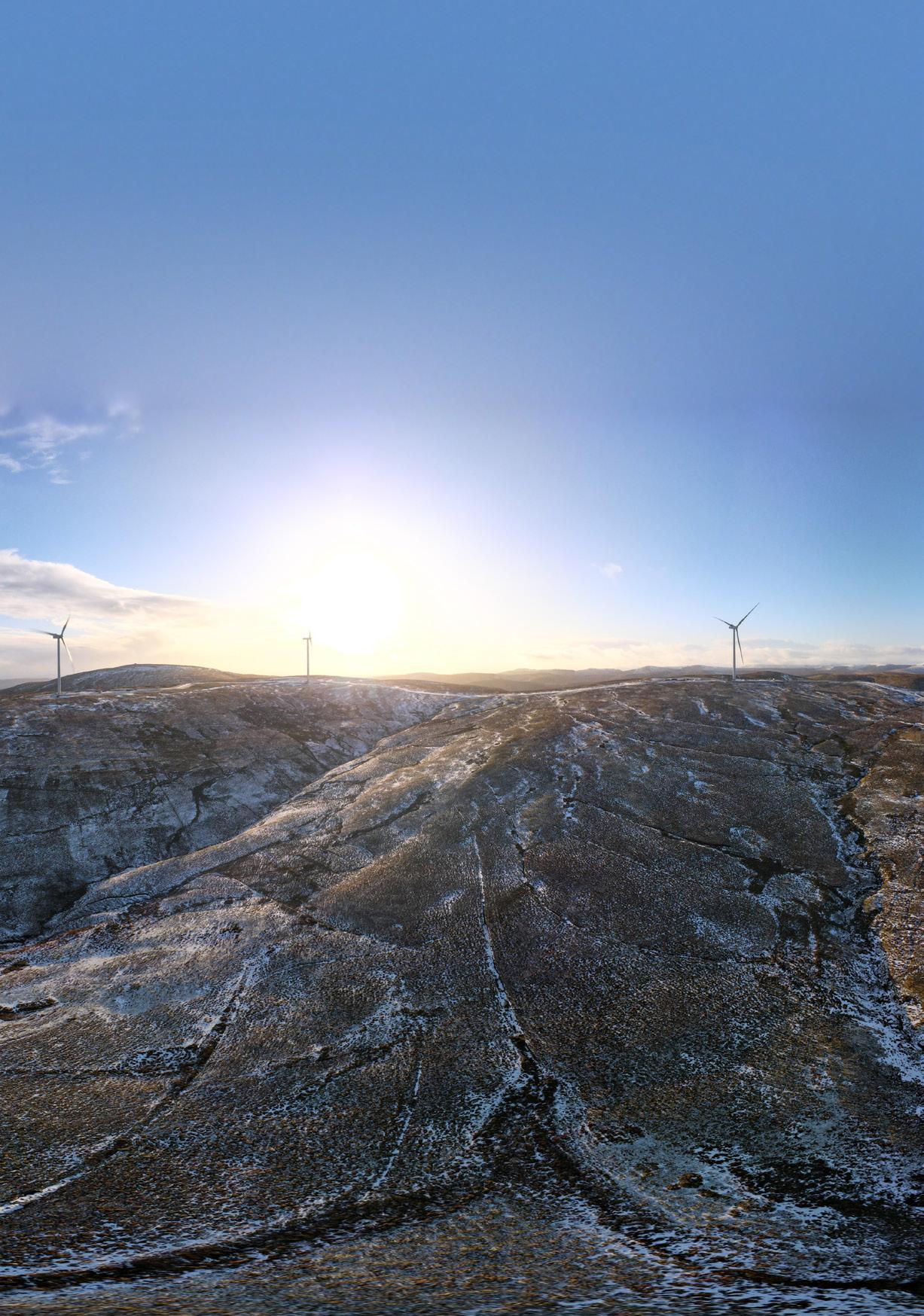

9 turbines, 140m tip height
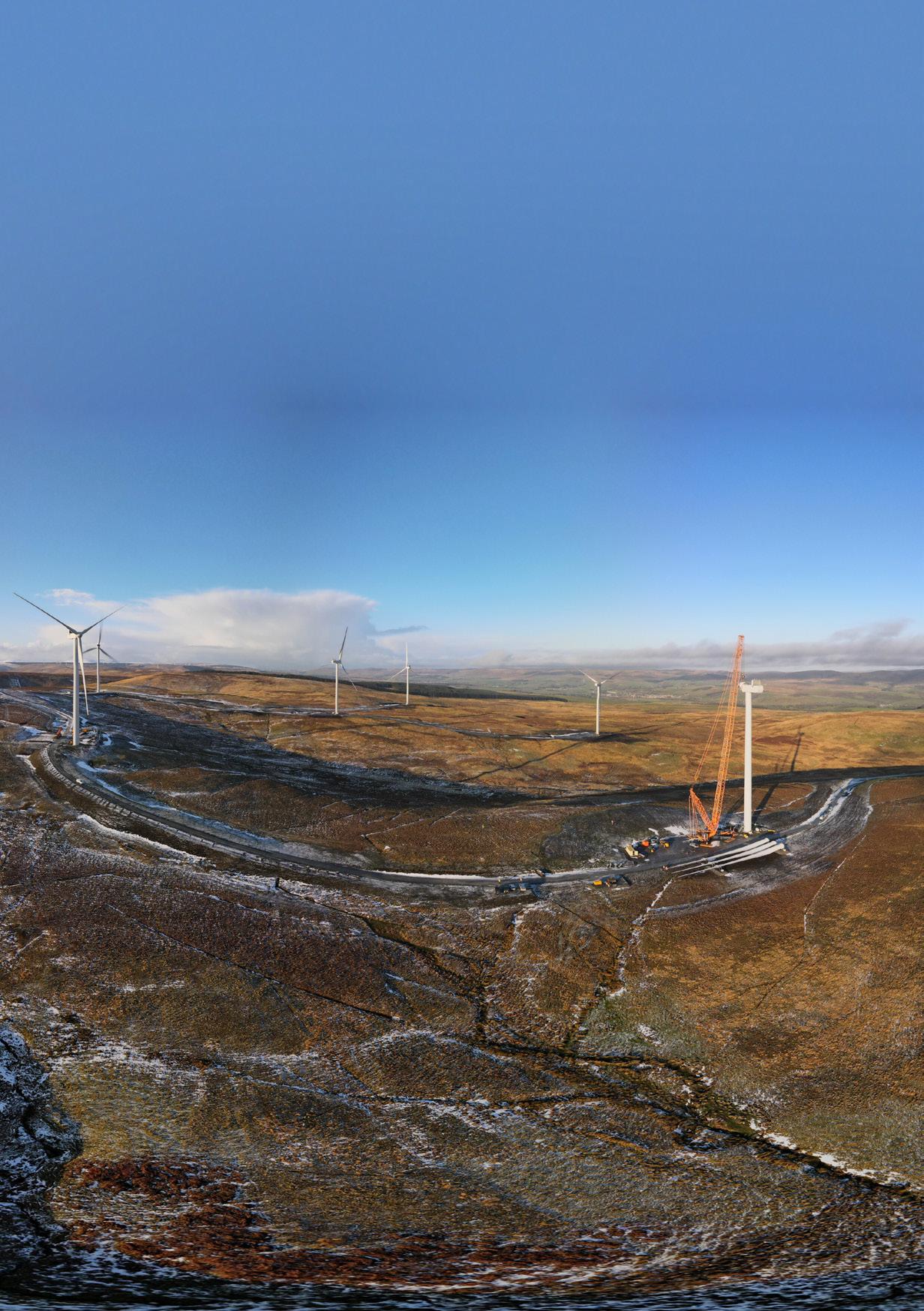
We will continue to engage and update the community before submitting our application, expected to be in late summer 2024.
Up
36 consent application) Max Blade Tip Heights Expected Installed Capacity (MW) Community Fund (per year) Estimated Generation (homes equivalent) Over 46,500 Homes per year (1) Up to £252,000 per year (2)
(1) Based on 50.4MW Installed Capacity, wind resource assessment and average Scottish domestic consumption of 3,520kWh pa (BEIS Dec. 2021). Candidate turbine still tbc’d.
December 2022
Requested the view of the Scottish Government, Scottish Borders, Dumfries and Galloway and South Lanarkshire Councils on the surveys and assessment methodology required to assess the Oliver Forest Wind Farm proposal (known as ‘Environmental Impact Assessment Scoping).
10 turbines
Up to 250m tip height.
Consultation with stakeholders and communities receiving their formal views and comments (within a document know as a ‘Scoping Opinion’) in April 2023.
1st Public Exhibition held February –March 2023.
The Wind Farm design has been revised following the environmental surveys and feedback from the public and stakeholders, particularly on visual, noise and peat impacts.
The key changes are:
Reduced from 10 to 7 turbines
Reduced turbine tip heights from up to 250m to up to 200m
Site layout is now more contained locating turbines further away from residential properties and scheduled monuments
Site layout maximises the use of existing on-site tracks and minimises the impact on watercourses, bog habitat and forestry.
This 2nd Public Exhibition presents the design which we anticipate will be submitted to the Scottish Government Energy Consents Unit accompanied by an Environmental Impact Assessment Report (EIA Report).
Since the 1st Public Exhibition we have completed a number of studies which have informed this design layout including:
- Noise monitoring and modelling
- Landscape and visual appraisal
- Private water supply appraisal
- Detailed Phase 2 peat survey
- Forestry appraisal
- Transport assessment
We welcome your feedback on this layout.

The wind farm layout presented today is expected to be the one submitted to the Scottish Government Energy Consents Unit as a Section 36 Application.
Minor revisions to the wind farm design taking into account consultee, community and other stakeholder feedback may be made before submission to the Scottish Government Energy Consents Unit.
Members of the community and other interested stakeholders will have an opportunity to make formal representations to the Scottish Government Energy Consents Unit on the proposal submitted.
We are designing a proposal that takes into account feedback received and believe it strikes a good balance between maximising the electricity output with a carefully designed proposal which relates to the landscape and other wind developments.
This is the current wind farm design. Further minor revisions may be made ahead of being submitted to the Scottish Government Energy Consents Unit in late summer 2024.
Oliver Forest Site Boundary
Turbine locations
Proposed New Access Track
Existing Access Track
Proposed Hardstanding
Proposed Borrow Pit
Proposed Temporary Wind Farm Compound
Proposed Temporary Compound
Proposed Scottish Power Energy Network (SPEN) and Wind Farm Substation
Proposed Scottish Power Energy Network (SPEN) Substation
Reducing tip heights of all turbines.
Repositioned turbines to increase distance from residential properties and minimise impact on bog habitats.
Turbines removed for landscape, visual and noise considerations and proximity to watercourses and scheduled monuments.
Positioned turbines to maximise the predicted available wind resource.

Use on site resources to minimise impacts on local roads during construction such as borrow pits.
Site designed to minimise construction footprint i.e. upgrading existing access tracks.









Statkraft will continue to engage with the local community and stakeholders throughout the project lifetime.
(12
Extensive research to identify site suitability: positive indicators include good wind speed and minimal environmental and technical constraints.
No public engagement is carried out during this time because the site may not pass the criteria required for being suitable for development.
We request the view of the Scottish Government, Scottish Borders Council, Dumfries and Galloway Council and South Lanarkshire Council on the surveys and assessment methodology to assess the Oliver Forest Wind Farm proposal (known as ‘Environmental Impact Assessment Scoping’).
Scoping is sent to local and neighbouring Community Councils and consultees such as NatureScot, SEPA and Historic Environment Scotland.
Two rounds of exhibitions have taken place to discuss the design and its changes with the local community. We expect our application to be submitted in late summer 2024.
An application for Section 36 consent is submitted to the Scottish Government Energy Consent Unit, accompanied by a comprehensive Environmental Impact Assessment (EIA) Report showing the results of all studies undertaken. This is publicly available information and will be available on the project and Scottish Government Energy Consents Unit websites.
Interested parties and consultees such as Scottish Borders Council, South Lanarkshire Council and Dumfries and Galloway Council and Community Councils hosting and neighbouring the proposal can formally comment on the application.

If Oliver Forest Wind Farm is consented, construction begins at least one year after consent.
Construction typically takes 12–24 months and planning conditions, including the provision of a Construction Environmental Management Plan, are used to manage elements of construction.
The turbines are managed from a regionally based maintenance team, and operations are controlled by detailed planning conditions.
We are committed to community benefit and shared ownership opportunities.
A community benefit fund is active throughout the operational lifetime of the project for a range of community initiatives.
At the end of the planning period, turbines are removed. A financial bond or guarantee is put in place before construction starts, to cover the decommissioning cost.
The process of gathering robust environmental data is vital to designing a wind farm which balances technical, environmental and commercial considerations. Surveys and assessments are undertaken by a team of specialist consultants to identify, assess and present any significant environmental effects of the Proposed Development and allow us to avoid, or minimise effects.
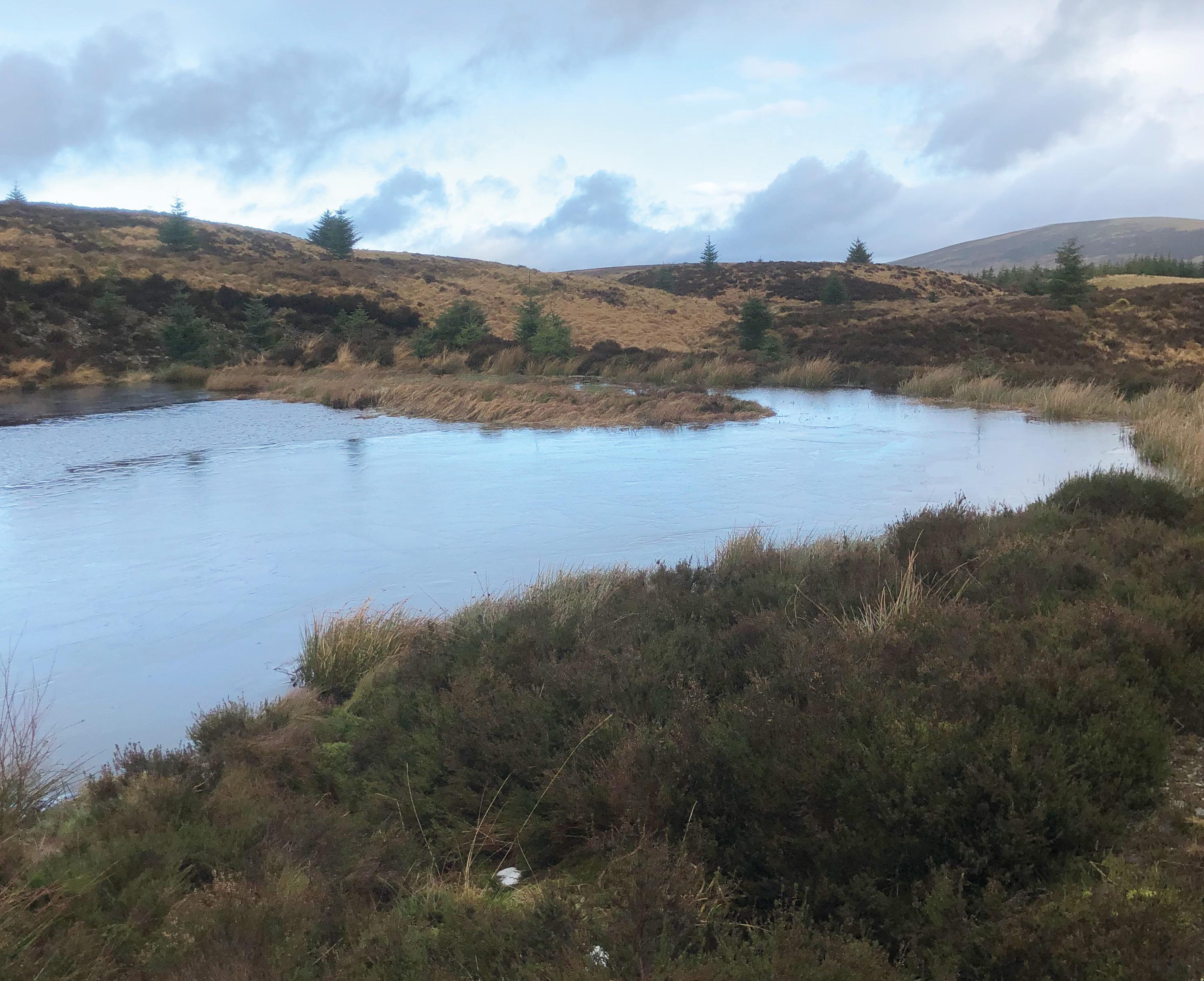

The information is incorporated into an Environmental Impact Assessment Report (EIA Report) and will be publicly available following submission of our application.
A number of statutory and non-statutory organisations are being consulted during the EIA process, including, but not limited to:
Scottish Borders, Dumfries and Galloway and South Lanarkshire Councils
NatureScot
Scottish Environment Protection Agency
Historic Environment Scotland
Transport Scotland
The EIA Report will consider the following topics:
Landscape and Visual Amenity
Ecology and Ornithology
Cultural Heritage
Forestry
Peat and Hydrology
Noise
Traffic and Transport
Climate Change
Land Use, Socioeconomics and Tourism
For this exhibition we have recreated the visualisations showing how the wind turbines could look from the local viewpoints shared at our 1st exhibition.
We have finalised and agreed with Scottish Borders Council, South Lanarkshire Council, Dumfries and Galloway Council and NatureScot the viewpoint locations for assessment.
Visualisations of all the agreed viewpoints will be available when we submit our application.
Viewpoint 4: A701 Layby east of Glenbreck
PREDICTED VIEW
As the proposed turbines are over 150m, a night time assessment will also be included from several viewpoints which have been agreed with consultees. Where possible we will aim to minimise the night time lighting scheme required for the Proposed Development.

Please

We pay particular regard to:
Cumulative landscape and visual effects with other wind farms in the study area, operational, consented and proposed.
The amenity of residential properties near to the Proposed Development and in the surrounding area.
The landscape character of the site and wider area.
Effects on the special qualities of landscape designations up to 45km, such as Upper Tweeddale National Scenic Area.


Ecology and ornithology surveys have been undertaken on the site from March 2022 and will be completed in April 2024.
These surveys look at the different habitats present on site through undertaking a National Vegetation Classification Survey. The surveys also identify the use of the site by birds, amphibians, fish and mammals and are undertaken in accordance with guidance issued by NatureScot.
The findings were used to inform the latest design of the wind farm through the avoidance of sensitive habitats. They have also informed the design of biodiversity enhancement measures currently being explored such as improvement of bog habitats and wild flower meadows. In addition we are working with the Bumblebee Conservation Trust to implement measures to improve invertebrate biodiversity across the site.
As the site primarily consists of commercial coniferous plantation forestry some felling will be required to accommodate the turbine and associated infrastructure. Compensatory planting will be proposed as part of our plans.

Desk and field-based surveys have been undertaken in order to determine the underlying bedrock of the site, establish the presence and depth of peat, identify private and public water supplies in the area that will be avoided.
Hydrology specialists have undertaken a desk and site based review of private water supplies including contacting local residents to gain an understanding of the location and catchments of the private water supplies. Based on the available information, the proposed turbines and infrastructure would be located out with the catchment areas for the private water supplies surveyed.
An initial survey of peat probing across the site only indicated some isolated areas of deeper peat.
A targeted peat Phase 2 survey has been undertaken focussing on areas proposed for turbines and associated infrastructure ensuring that new sections of access track and other infrastructure minimise impacts on peat. A Peat Management Plan will ensure the appropriate management including re-use of any excavated peat during construction,
The cultural heritage assessment is being undertaken in-line with Historic Environment Scotland (HES) guidance. Desk-based and field-based surveys have being undertaken in order to investigate archaeological and cultural heritage assets within the site and surrounding area.
Three Scheduled Monuments and a number of non-designated assets are known to be located within the southern part of the site.
The information gathered from the surveys has been used to inform the design of the wind farm and associated infrastructure to avoid, where possible, any direct impacts on identified assets. The proposed turbines have been moved away from the valley floor in order to reduce impacts on the Scheduled Monuments. Consultation has been undertaken with HES to discuss the design layout changes.

Background noise monitoring was carried out at representative locations around the site in June and July 2023. The background noise levels will be used to determine the noise limits that the wind farm would have to operate within.
Data from this monitoring has also fed into the design of the wind farm with the removal of a turbine from the initial layout due to potential noise impacts.
Noise assessment have been undertaken in accordance with the current best practice guidance and standards.
The noise assessments considers the potential effects of construction works and traffic and operation of the proposed wind farm on nearby residential properties. The assessment takes into account other wind farm schemes operating or in development in the area.
The noise limits are informed by Government guidance (ETSU-R-97). If consented, the future operational site would operate within levels considered acceptable under these guidelines.
It is proposed that the transport route to the site would be from the A701 via an upgraded forest access junction.
A transport assessment will consider the impacts of increased traffic volumes expected on local roads during construction and how to minimise this impact. Likely measures include a Wear and Tear Agreement with relevant Councils (Scottish Borders and Dumfries and Galloway), the provision of a Construction Traffic Management Plan and an Abnormal Load Transport Management Plan.
The assessment of route(s) for the vehicles delivering the turbine components (Abnormal Indivisible Loads) has been undertaken in order to identify any measures that may be required to facilitate delivery to the site, for example, where traffic management measures may be required.
All road works and measures required to ensure the safe and efficient access for the turbine deliveries will be published in the EIA Report.

An assessment of the potential economic effects of the wind farm will be undertaken and will set out the expected job creation, economic value and benefit to the local and wider economy through the different stages of the development life cycle.
It will assess all potential positive and negative impacts for the development including regional and local communities, as well as tourists, tourism related businesses and other recreational groups where appropriate. We welcome your ideas on how we can maximise the economic benefits our project could bring.
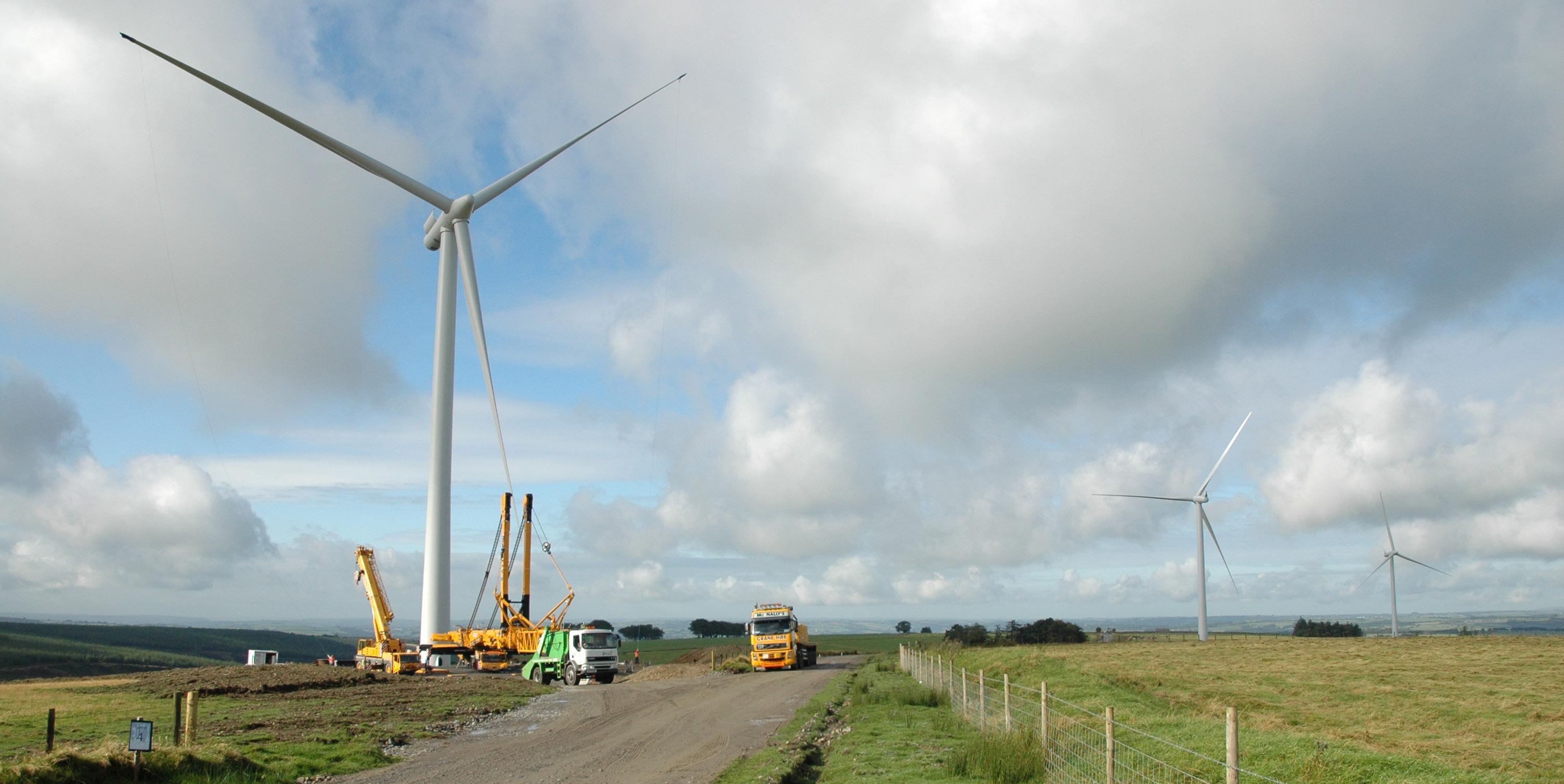
The Scottish Government has set a legally binding target to achieve net-zero emissions by 2045. Developments such as Oliver Forest Wind Farm are key to meeting this target. Whilst Scotland has continued to make good progress in reducing its greenhouse gas emissions, the need for low carbon energy supplies is paramount if Scotland is to achieve this net zero target.
By 2030, The Scottish Energy Strategy calls for 50% of ‘all energy’ to come from renewables. It emphasises that onshore wind is now one of the cheapest forms of electricity and will therefore continue to play an important role in this.
To quantify the anticipated emissions savings of Oliver Forest Wind Farm a “carbon payback period” will be calculated using Scottish Government guidance.

“ We need more renewable energy, but why here?”
This is one of the most common questions we are asked when we propose a wind farm. This is a very understandable question, and the answer goes beyond the fact that Scotland has one of the strongest wind speeds in Europe. We were pleased to be able to answer this question with the detail it deserves during a webinar hosted by the news website FutureNetZero. You may be surprised to know that our analysis shows less than 10% of land in Scotland is suitable for development of onshore wind.
You can watch the full webinar here.
 RICHARD MARDON, VP Development, Statkraft UK
RICHARD MARDON, VP Development, Statkraft UK
Richard takes us behind the scenes of the development process, with a step by step guide on the challenges faced in finding the best sites to maximise Scotland’s excellent natural wind resource.
Since 2002 Richard has worked in onshore wind in the UK, and has had oversight of the development, construction and operation of several completed Scottish wind projects.
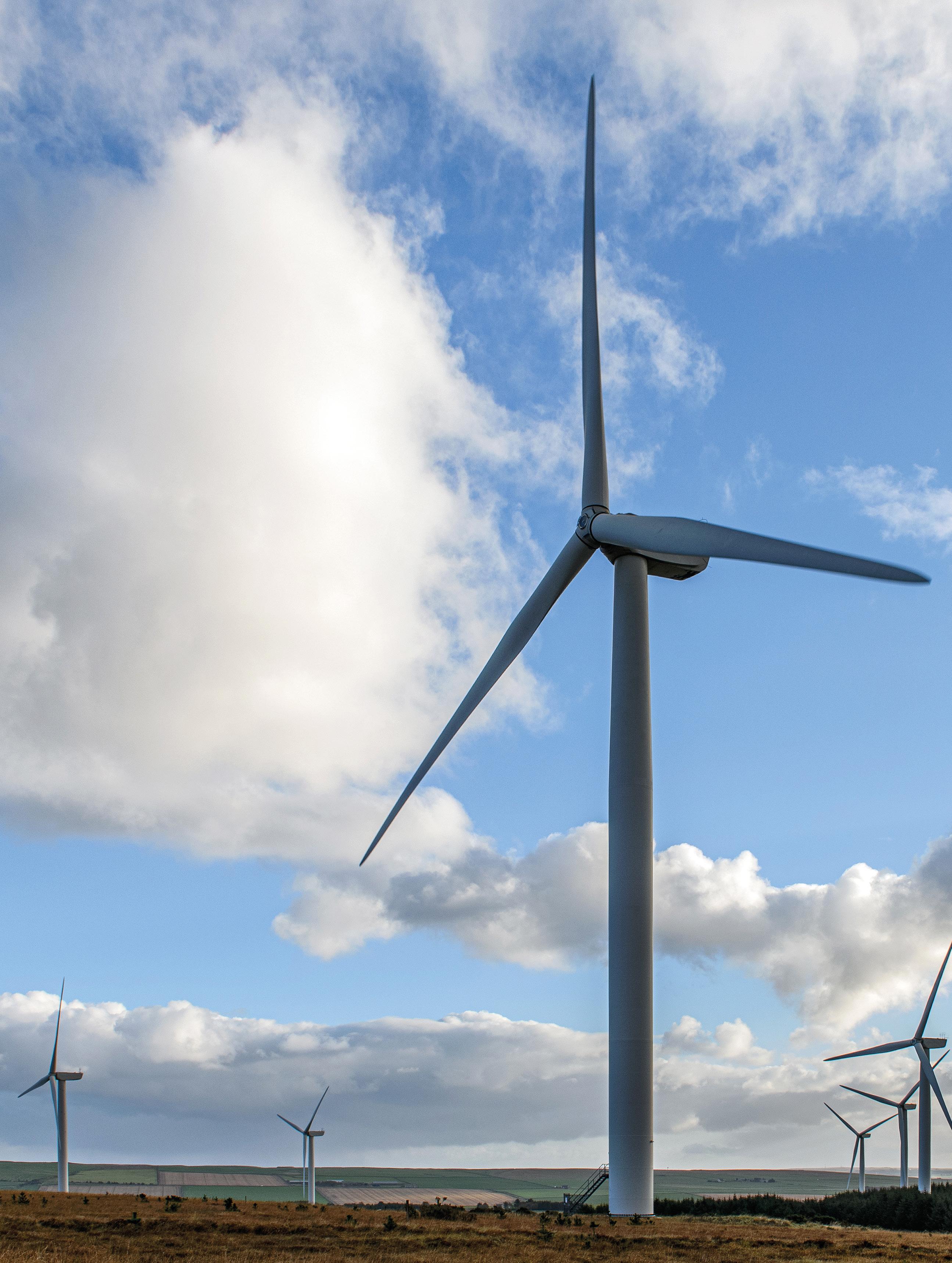

“Think about it like a bath – turn on the taps and you add more water, pull out the plug and water flows out. The amount of water in the bath depends on both the input from the taps and the output via the plughole. To keep the amount of water in the bath at the same level, you need to make sure that the input and output are balanced.
Reaching net zero applies the same principle, requiring us to balance the amount of greenhouse gases we emit with the amount we remove. When what we add is no more than what we take away we reach net zero. This state is also referred to as carbon neutral; although zero emissions and zero carbon are slightly different, as they usually mean that no emissions were produced in the first place.”
We want our wind farms to bring benefits to the local area. We welcome a conversation with you about how we can bring new investment to your communities through the Oliver Forest Wind Farm.
“ Windy Rig Wind Farm is another valuable contract for GTR. We are just one of several local businesses who are directly benefiting from the many wind farm developments within this area. This can only be a good thing for both local businesses and the local economy.”
Tanya Russell, Director, GTR Contracts Ltd
Committed to setting up a Community Benefit Fund for Oliver Forest Wind Farm of £5,000 per MW installed per year. We are keen to work with communities to deliver a fund that can meet local community needs and priorities.
We are a member of the Chamber of Commerce and will work with them to increase awareness of the opportunities in construction and operations. We have successfully used local contractors on our recent construction projects.
Register your interest by scanning the QR code:

Progress the opportunity, if there is interest for local groups to have a financial interest, in our project, with the support of organisations such as Local Energy Scotland.
We welcome ideas on how our project can support local education, employment opportunities and boost local businesses.
We hope to submit an application in late summer 2024 when all the application documents will be publicly available.
We welcome your comments and feedback. Please register your comments by completing a feedback form by 19 April 2024.
As the project progresses, we will continue to engage with local stakeholders and communities. Comments made to Statkraft are not representations to the consenting authority. If an application is submitted there will be an opportunity for you to submit a formal response to the Scottish Government at that time.
Thank you for attending the Oliver Forest Wind Farm Exhibition.


Statkraft UK
The Garment Factory
10 Montrose Street
Glasgow G1 1RE
www.statkraft.co.uk
For more information
about Oliver Forest Wind Farm
www.oliverforestwindfarm.co.uk
Phone: 0800 772 0668
Statkraft is a proud partner of SolarAid, helping to provide access to clean energy for the most vulnerable across Africa.
WHAT IF YOU COULD HELP TRANSFORM A LIFE AND TACKLE CLIMATE CHANGE AT THE FLICK OF A SWITCH?
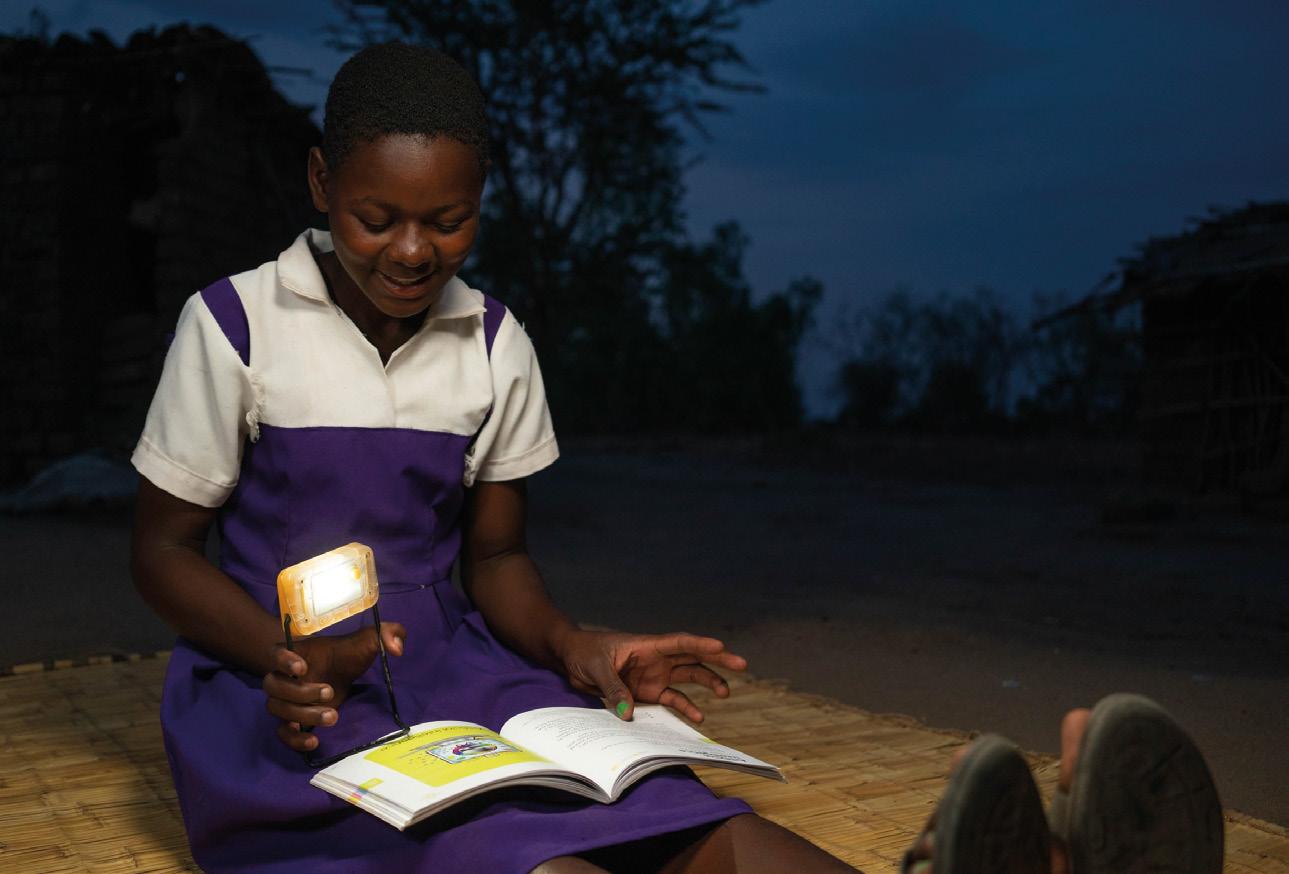
Nearly 600 million people across sub-Saharan Africa live without electricity and ignite polluting and toxic lighting sources such as paraffin candles and kerosene lamps. SolarAid is creating a world where everyone has access to safe clean solar lights. Join us.
Visit solar-aid.org to find out more or donate:
